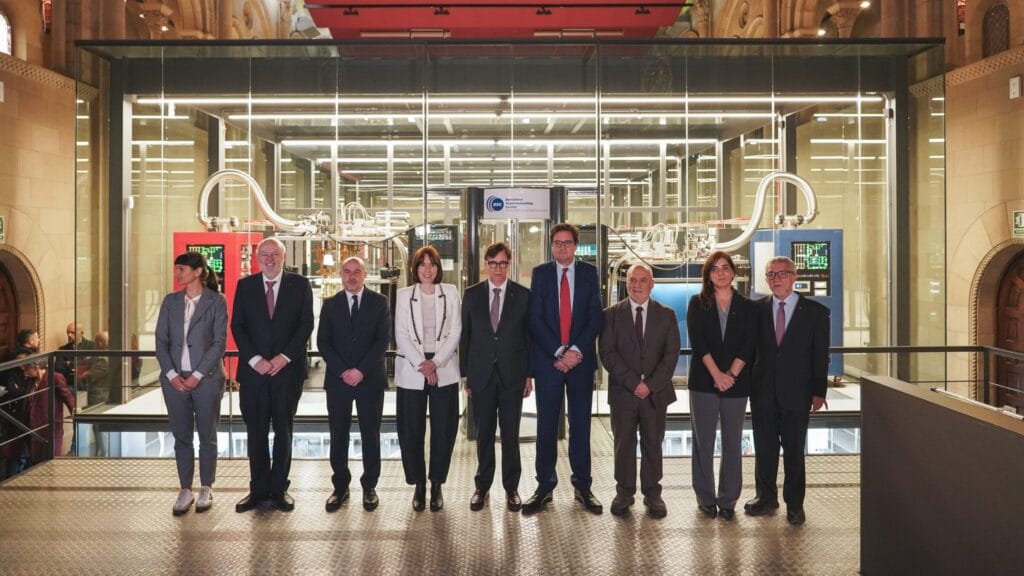The Barcelona Supercomputing Center – National Supercomputing Center (BSC-CNS) has taken a historic step with the presentation of the first quantum computer developed with 100% European technology. This achievement positions Spain at the forefront of supercomputing and marks the beginning of a new era in hybrid computing, which combines classical and quantum technology.
The system is part of Quantum Spain, a project coordinated by the BSC and promoted by the Ministry of Digital Transformation and Public Function through the State Secretariat for Digitalization and Artificial Intelligence (SEDIA). The initiative is funded by the Recovery, Transformation, and Resilience Plan and is aligned with the goals of the Spain Digital 2026 program and the National Artificial Intelligence Strategy (ENIA).
A Collaborative Initiative
Quantum Spain involves 27 leading research and supercomputing institutions in Spain, including the 14 nodes of the Spanish Supercomputing Network (RES), the CSIC, ICFO, and universities such as the University of Barcelona, the Autonomous University of Madrid, and the Polytechnic University of Valencia, among others.
Integration into MareNostrum 5
The new quantum computer was presented at the Tower Girona chapel, a historic site where the first four versions of MareNostrum were also installed. The new infrastructure will be integrated into MareNostrum 5, the most powerful supercomputer in Spain and one of the most advanced in the world.
The presentation event was attended by prominent authorities, including Salvador Illa, President of the Generalitat of Catalonia; Diana Morant, Minister of Science, Innovation, and Universities; Óscar López, Minister for Digital Transformation and Public Function; and María González Veracruz, Secretary of State for Digitalization and Artificial Intelligence, among other government representatives.
The integration of this system into MareNostrum 5 represents an advance in the computational capacity of the country. Additionally, the BSC has been selected to host one of the first European analog quantum computers, awarded by the European High-Performance Computing Joint Undertaking (EuroHPC Joint Undertaking) of the European Commission. The combination of both technologies strengthens Spain’s leadership in the field of quantum supercomputing in Europe.
Applications and Benefits of Quantum Computing
The development of quantum computing has revolutionary potential in fields such as chemistry, logistics, finance, and security. Its ability to perform complex calculations at the atomic level can accelerate the creation of new materials and pharmaceuticals, improve optimization processes in various industries, and enhance cryptography with new cybersecurity solutions.
Moreover, the combination of quantum computing and artificial intelligence will enable the development of more efficient machine learning algorithms, which could revolutionize sectors like data analysis and automated decision-making.
A Milestone in European Technological Autonomy
The Quantum Spain computer has been built by the UTE formed by the Spanish companies Qilimanjaro and GMV, leaders in cutting-edge technologies. The system is based on superconducting qubits, which, unlike traditional bits, can represent multiple states simultaneously, allowing for highly complex calculations.
This milestone reinforces the strategy of European technological autonomy and reduces dependence on critical infrastructures from third countries, aligning with the European Commission’s goals regarding digital sovereignty.
With the launch of this system, Spain is positioned at the forefront of quantum research and supercomputing, contributing to the development of a knowledge-based, innovative economy.

